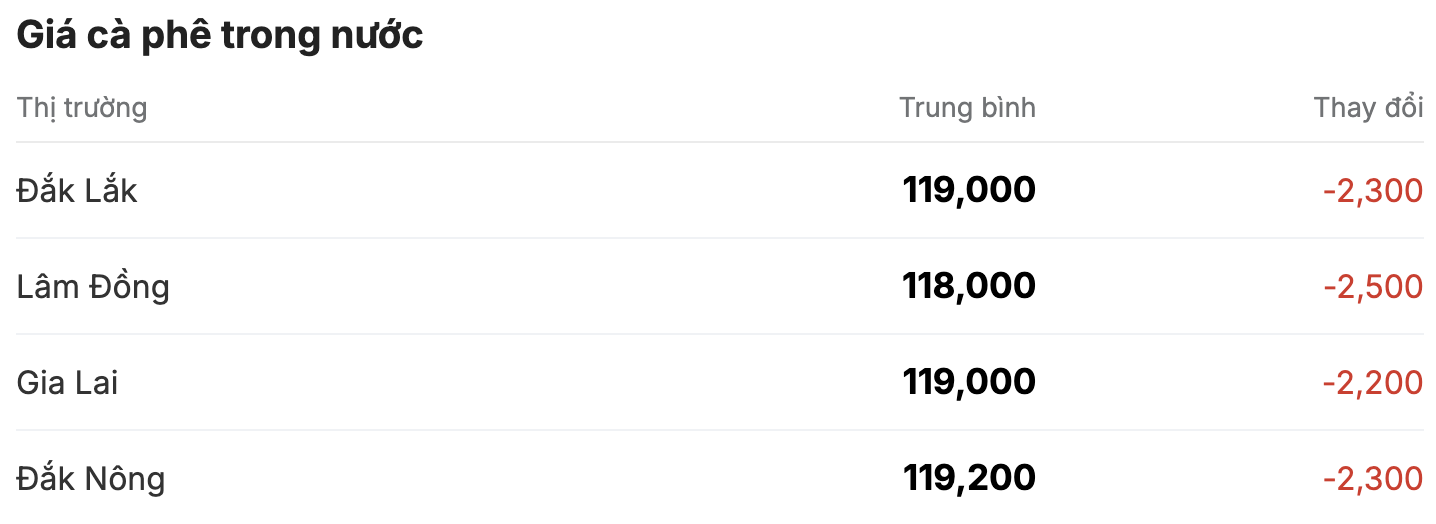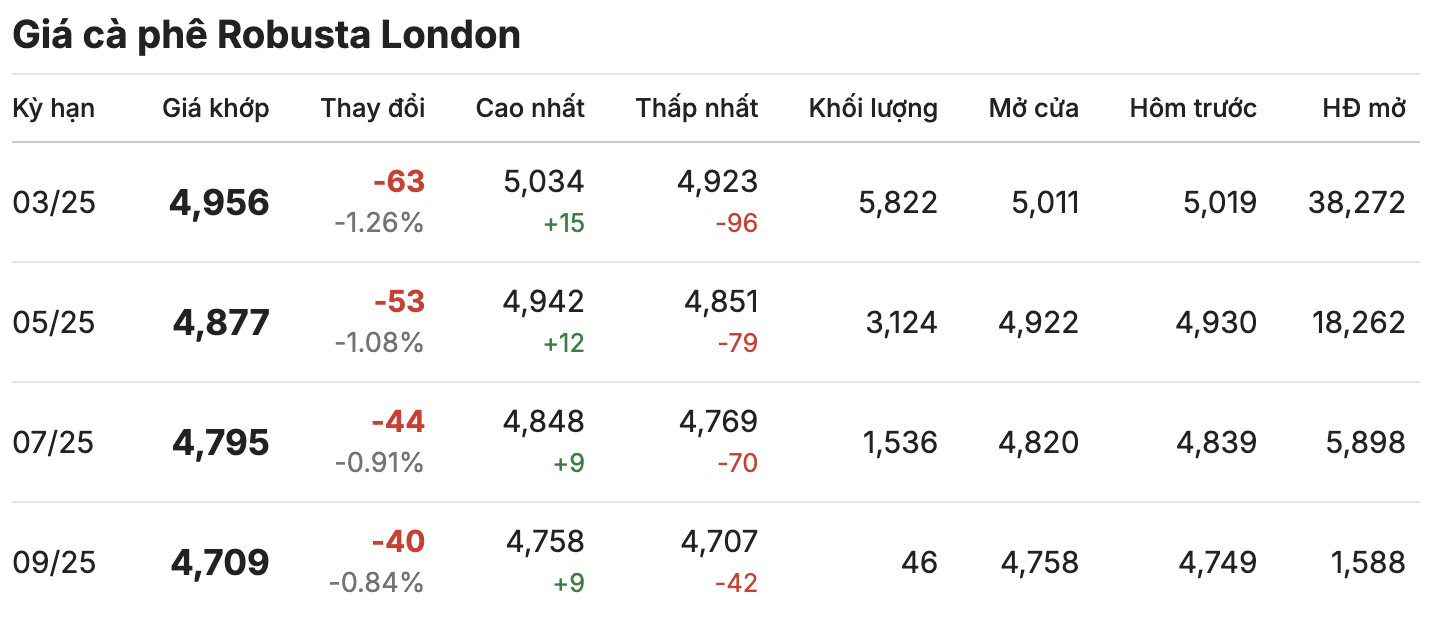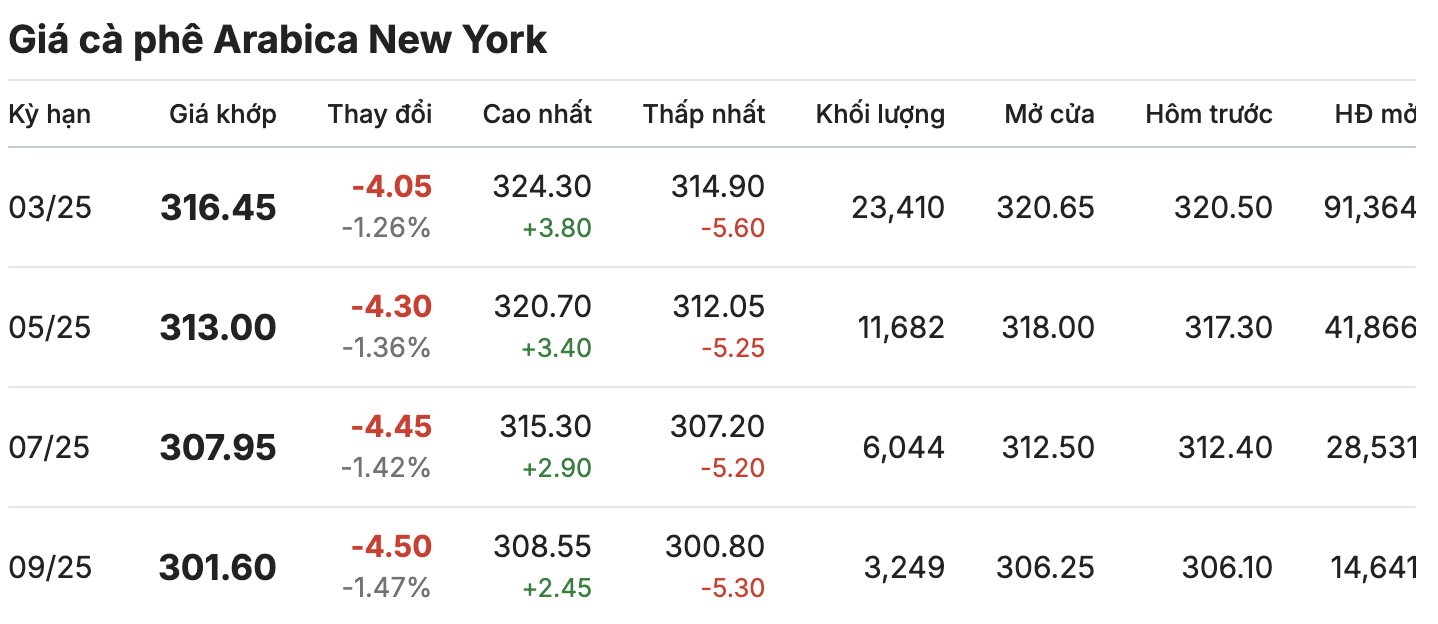As of 11:30 a.m. today (January 9), the domestic coffee market suddenly dropped dramatically, averaging a decrease of VND2,300/kg per session, with the current purchase price fluctuating between VND118,000 - VND119,200/kg. The average coffee purchase price in the Central Highlands provinces today is VND119,100/kg.
Lam Dong is still the province with the lowest coffee purchasing price in the Central Highlands, with an average price difference of about 1,100 VND/kg. Compared to yesterday's slight increase, coffee prices in this region have "turned around" and dropped by 2,500 VND/kg, reaching the market price of 118,000 VND/kg.
Purchasing at a higher price than Lam Dong, coffee prices in Gia Lai and Dak Lak provinces today simultaneously set the mark of 119,000 VND/kg.
Notably, Dak Nong is still the leading province among the provinces and cities with the highest coffee purchasing price, reaching 119,200 VND/kg, despite a plunge of 2,300 VND/kg.

On the London and New York exchanges, the coffee market was covered in red in all terms. On the London Robusta coffee exchange, coffee prices fell sharply, far from the peak of 5,000 USD/ton. The contract for delivery in March 2025 decreased by more than 1% (equivalent to 63 USD/ton), anchored at 4,956 USD/ton. The contract for delivery in May 2025 slid 1.08% (equivalent to 53 USD/ton), listed at 4,877 USD/ton.

Similarly, the New York Arabica coffee market also recorded large fluctuations. The March 2025 delivery period reversed and decreased by more than 1%, standing at 316.45 cents/lb. The May 2025 delivery period also decreased by 1.36%, entering the market at 313.00 cents/lb.

Speculators have sharply reduced their net buying positions, which has had a major impact on coffee prices. In addition, increased inventories have also pushed coffee prices down. Inventories on the New York Arabica Exchange rose to a 2.5-year high of 993.562 million bags. Inventories on the London Robusta Exchange also rose to a 3-month high of 4,415 lots.
According to the Vietnam Coffee and Cocoa Association (Vicofa), the recent sharp increase in domestic coffee prices has been due to many factors. A severe shortage of supply due to climate change and drought has reduced output, while the conversion of many garden owners to new crops has also contributed to the high prices. In addition, global conflicts have put pressure on the supply chain, especially when farmers hold onto their goods waiting for better prices after the harvest.










